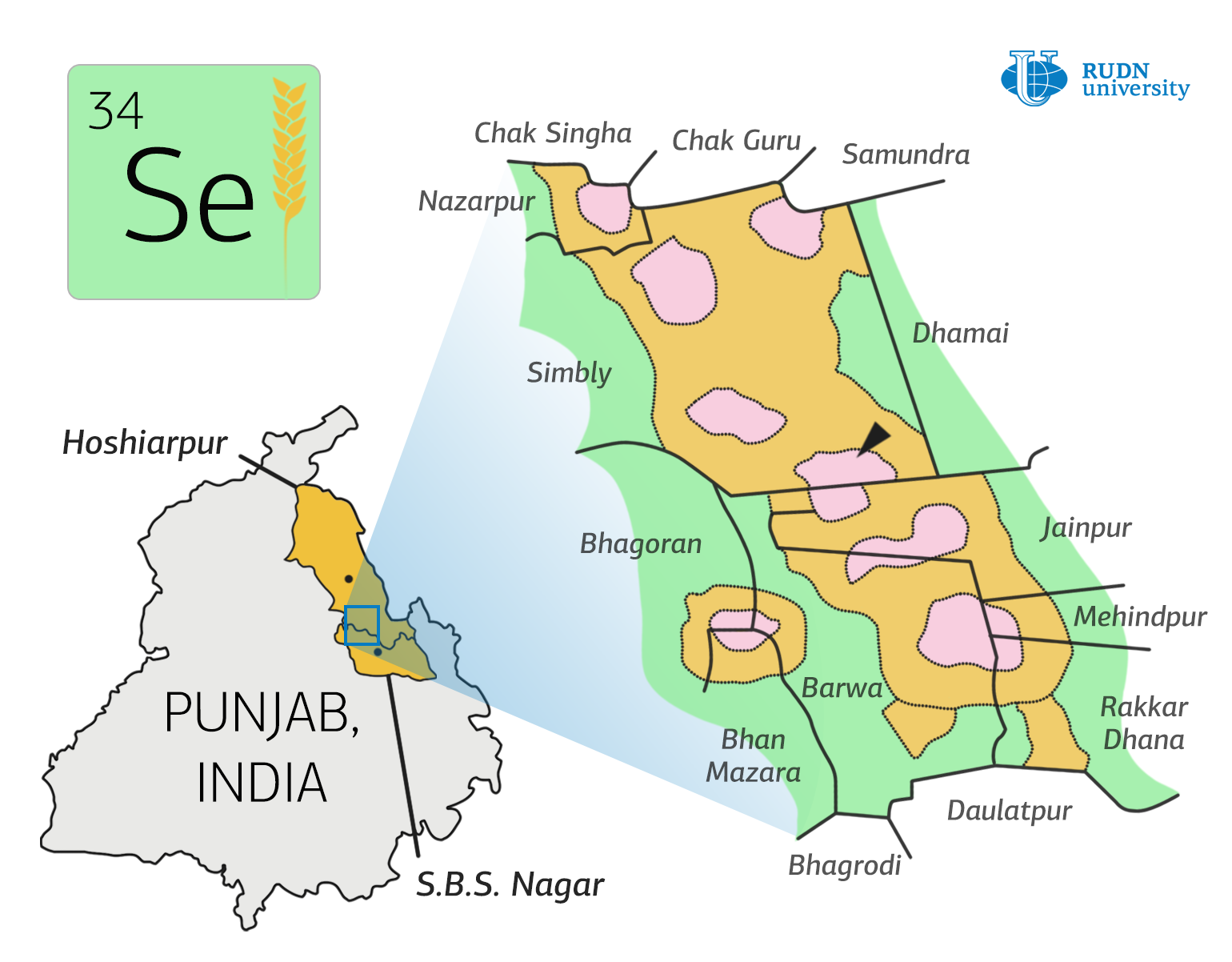RUDN doctors discovered high levels of selenium in wheat grown in selenium-rich areas
Selenium (Se) deficiency may be associated with the development of such pathologies as Keshan and Kashin-Bek diseases, which are common in China and Central Asia, although isolated cases have been documented in Russia. Normalization of the level of Se in the body leads to a decrease in risk of a number of metabolic disorders. Therefore, the development of methods for correcting selenium levels in the human body has become an important aspect of preventive medicine.
Under the grant of the Russian Foundation for Basic Research (RFBR), RUDN doctors in collaboration with colleagues from YarSU named after P. G. Demidov and Tapar University (Patiyala, India), with the guidance of Margarita Skalnaya, MD and professor of the medical elementology department of the RUDN University, evaluated the levels of Se and other microelements in wheat in the Se-rich Punjab region of India.
The researchers selected 12 samples of wheat grains from the Se-rich and Se-normal regions, and then made traditional Indian roti cakes from the flour made from the wheat. The samples were processed by microwave decomposition in nitric acid at a temperature of 170-180 °C for 20 min. The levels of selenium and other microelements (Co, Cr, Cu, Fe, I, Mn, Si, Sr, V, Zn) were determined by inductively coupled plasma mass spectrometry.
RUDN doctors found that the selenium level in wheat from Se-rich areas exceeded the similar value for the wheat from normal areas by more than 488 times. The bread contained 179 times more selenium.
The researchers have shown that in the bread made from the wheat grown in the area with a high Se levels, the levels of chromium (Cr), copper (Cu), iodine (I), manganese (Mn) and vanadium (V) exceed the control values by 203%, 22%, 78%, 43% and 40% respectively. As with the wheat grains, the levels of lithium (Li) and strontium (Sr) in the Se-fortified bread were 21% and 39% lower than in the bread with normal Se levels. The experiment has also shown that if wheat is grown on selenium-rich soils, the concentration of toxic metals decreases: the amount of arsenic (As) in grain has decreased by 23%, and arsenic and mercury (Hg) in bread have decreased by 37% and 65%.
“It is assumed that the identified differences may be the result of changes not only in the general level of selenium, but also in its individual forms, as well as the acidity of the soils. In this case, a decrease in the content of heavy metals and metalloids can be mediated by the direct interaction of selenium with mercury and arsenic, preventing their accumulation, as well as by an increase in the activity of the plant antioxidant system”, said Alexei Tinkov, one of the authors of the article.
The authors of the study believe that bread with high levels of selenium can help people with the deficiency of this microelement, but if consumed as usual, it can subsequently lead to an excess of it. Therefore, the consumption of these products must be controlled. Later, the authors of the study plan to evaluate Se bioavailability from other cereal products saturated with it.
The article was published in the journal Biological Trace Element Research.
The RUDN Prize for Scientific Achievements in Chemistry for 2025, with a monetary award of 2 million rubles, was awarded to Alexander Davidovich Dilman, Deputy Director of the N.D. Zelinsky Institute of Organic Chemistry of the Russian Academy of Sciences. The researcher received the award during the celebration marking RUDN’s 66th anniversary.
Sergey Ivanov, a scholar from St. Petersburg, has been named the first winner of RUDN University’s International Prize for Scientific Achievements in Mathematics, worth 5 million rubles.
Products derived from microalgae represent a cutting-edge development in the field of bioeconomy. The potential of this biological resource was discussed at the international research seminar “Foundations for a Green Sustainable Energy”, part of the BRICS Network University’s thematic group on “Energy”. The event was organized by the Institute of Ecology at RUDN University.
